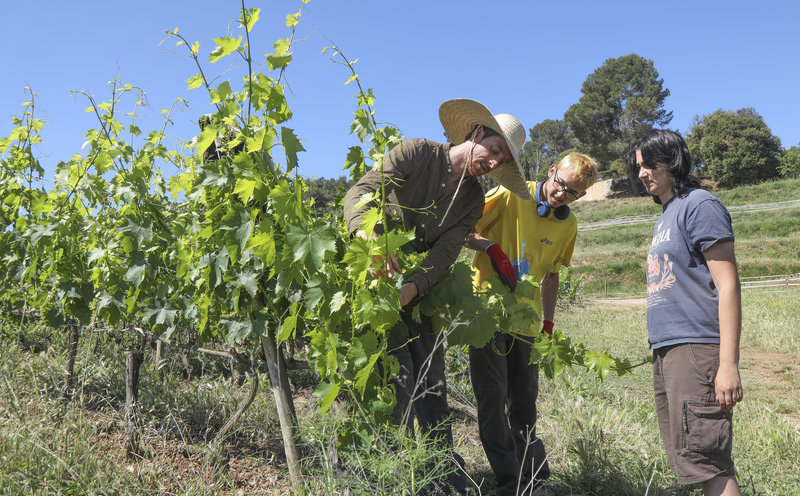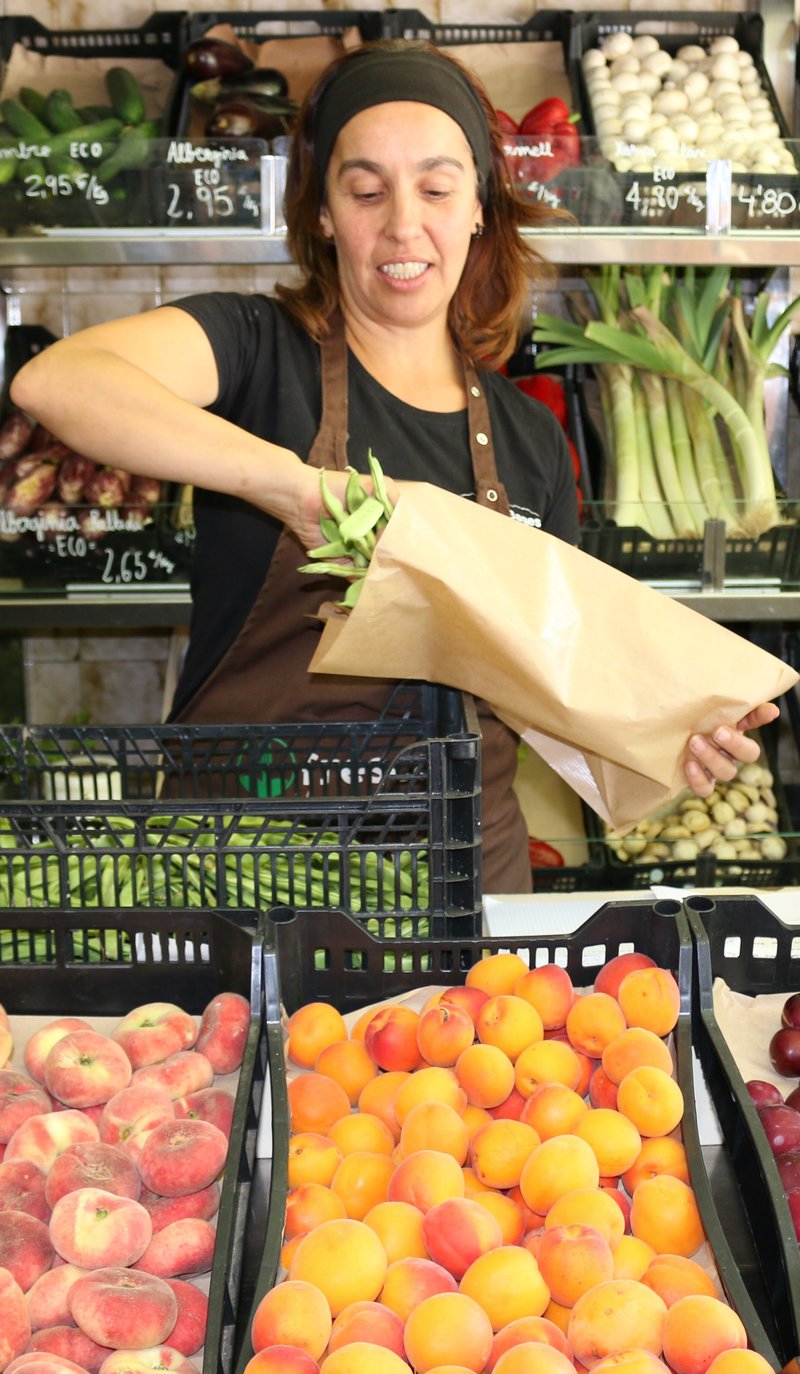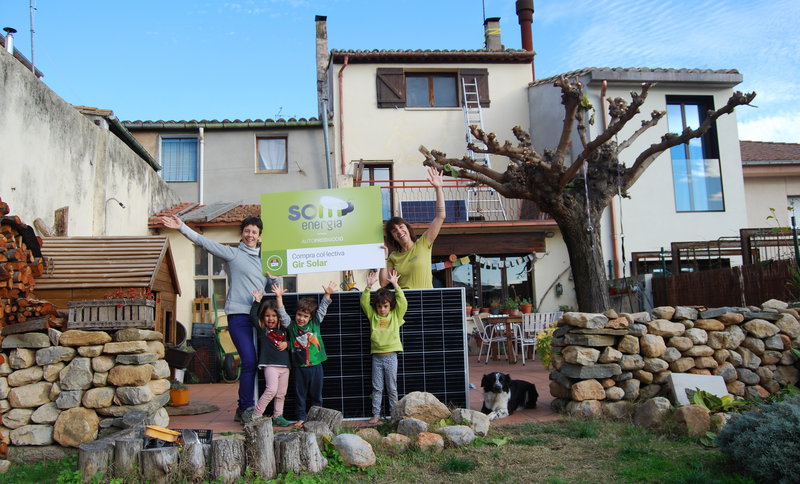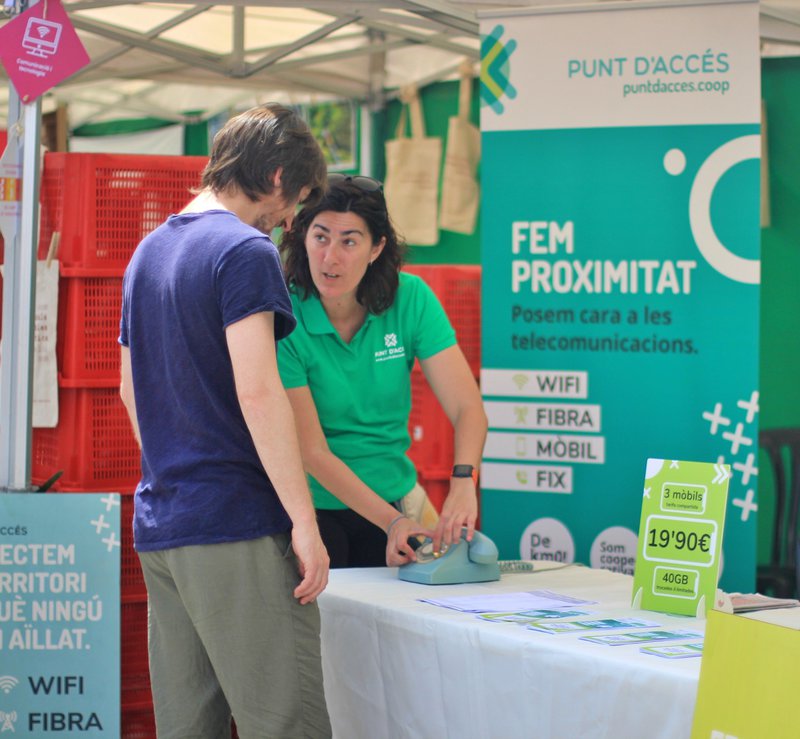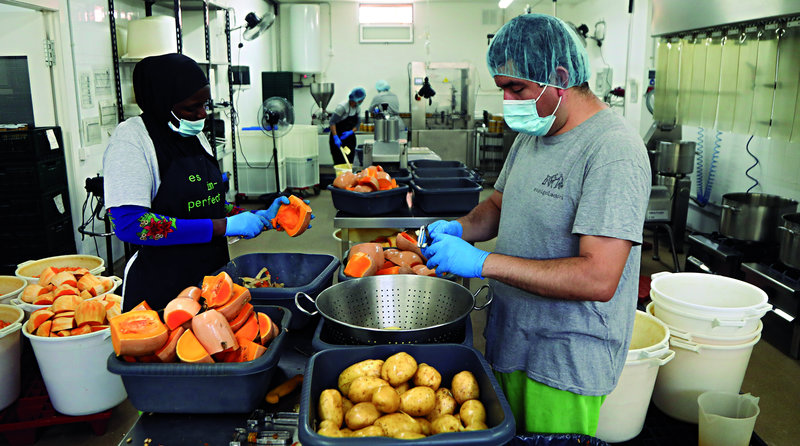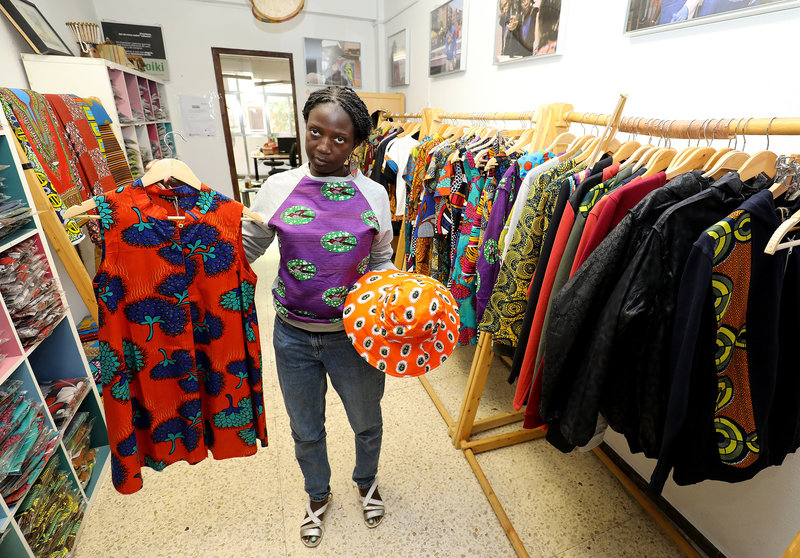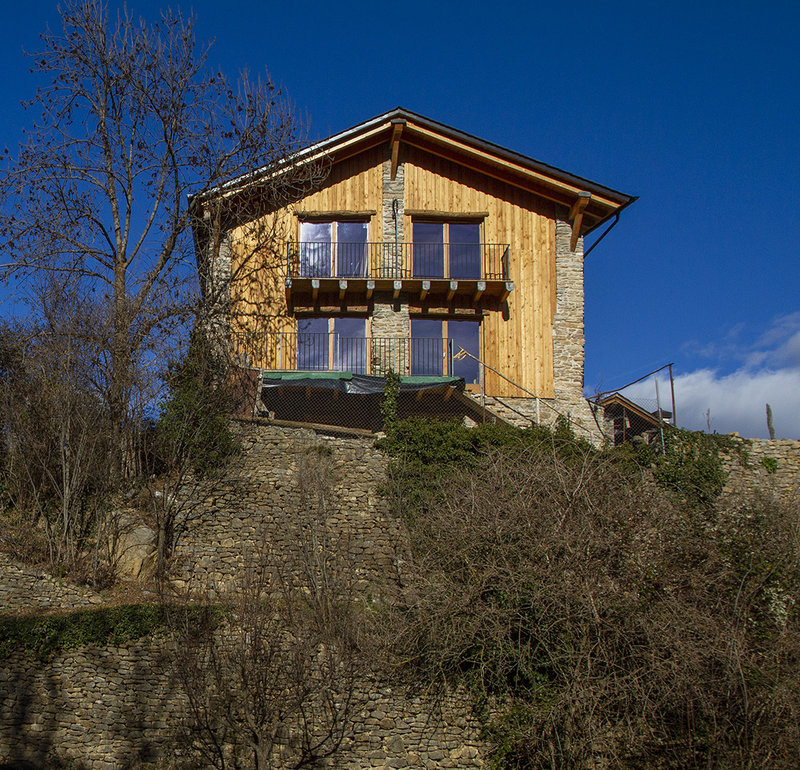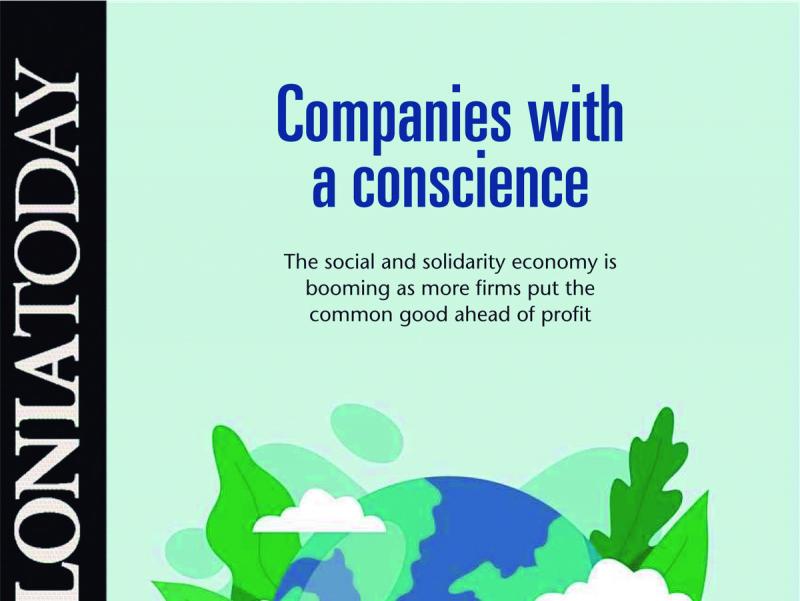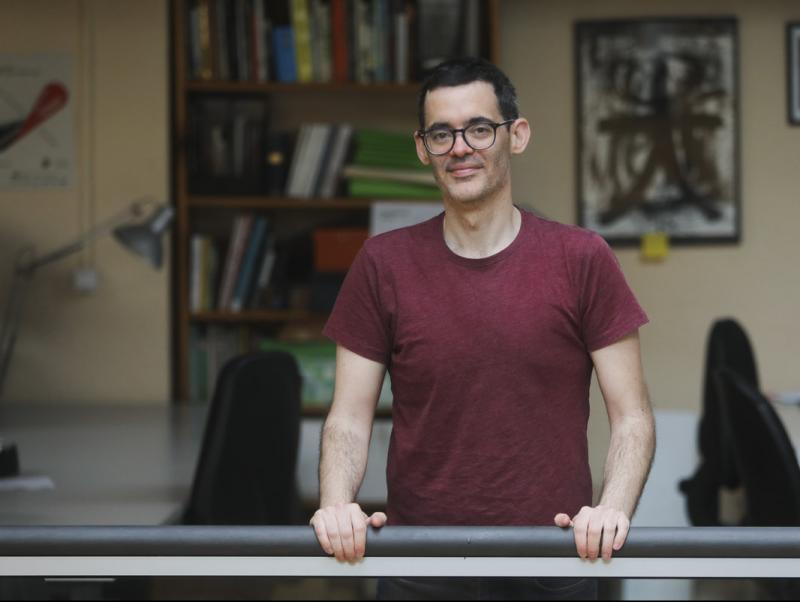Companies with a social impact
With the aim of serving the common good, responding to social needs and putting people first, social enterprises are on the rise in Catalonia, showing that there is another way of doing business
Another way of working, producing, distributing and consuming is an increasingly common reality in Catalonia Since 2016, the Catalan government’s Social Economy Programme has overseen more than €65m of investment
The Social and Solidarity Economy in Catalonia is made up of more than 10,000 companies and organisations that employ 180,000 people
The pandemic and the logistics crisis have not only made developing another type of economy desirable but possibly necessary
Social enterprises are oriented towards the common good with the aim of making a positive social impact
New legislation includes measures to create new organisations and boost innovation, public awareness and training
The Acció business agency offers support in 40 offices around the world and up to 120 hours of personalised consulting
The Social and Solidarity Economy (SSE) in Catalonia is made up of more than 10,000 companies and organisations that employ 180,000 people, according to the Catalan government. It includes cooperatives, labour societies, special work centres, foundations and associations and what they all have in common is that their main goal is not economic but social. Perhaps the most well-known case is La Fageda yoghurt manufacturer from Santa Pau, which is a social enterprise that is studied in universities and business schools around the world. Yet there are increasingly more examples in all areas, from food to culture to textiles, and including medicine, energy, architecture and banking. The pandemic and the logistics crisis have not only made developing another type of economy desirable but possibly necessary. Despite the current economic crisis, conscientious, ethical and local consumption is gaining ever more adherents and the sector knows that to take advantage of the situation there needs to be more awareness campaigns and the network of organisations needs to be strengthened. In Catalonia, these efforts will be helped by upcoming legislation dealing with the Social and Solidarity Economy.
Social enterprises are oriented towards the common good with the aim of making a positive social impact, surpluses are reinvested to create and maintain jobs or to develop activities to help achieve their social objective, they take decisions democratically and employ mechanisms that allow the different groups in the organisation to have their say, they are committed to the environment and gender equality... These are some of the principles and values of the Social and Solidarity Economy included in the text of the future law that has already been agreed between the government and the sector. The legislation aims to clearly define which organisations fall under the SSE umbrella in order to create a register and provide them with promotion tools. As Josep Vidal, director general of the Catalan government Department of Social Economy, the Third Sector and Cooperatives, explains, the aim is to pass the new law at the start of next year.
Training is key
Vidal stresses that his department has worked closely with the sector to develop the legislation, which includes measures to create new organisations and boost innovation, public awareness and training. Regarding the latter, the general director points out that in 2016 the first specialist master’s degree in Social and Solidarity Economy was created and now almost all public universities offer it. Yet he insists that the ultimate goal is to incorporate this different way of doing business that focuses on people rather than profit into the entire school curriculum. The first steps towards this are already being taken and more than 7,000 secondary school pupils have taken part in the series of modules, the Social Economy and Ethical Finance Educational Itineraries. Analysing the economy as an opportunity to solve needs, simulating a collective project to learn the principles and values of cooperatives and taking a critical look at consumption are some of the activities in these training courses.
Meanwhile, the Catalan government’s Social Economy Programme was launched five years ago. Since 2016, it has overseen more than 65 million euros of investment and has helped create 1,207 companies and 4,750 jobs. Now the authorities want to go further: the Social and Solidarity Economy law will establish new public-private collaboration mechanisms. That means, in addition to establishing measures so that SSE gains a larger share of the public purchase of goods and services, one proposal is that administrations transfer infrastructure and properties to these types of productive projects. The future law also indicates that “the economic policies of the country must promote the values of the social and solidarity economy in order to move towards a more democratic, equitable, sustainable and feminist economy”.
For Francina Alsina, member of the board of directors of the Social Economy Association of Catalonia (Aescat), this must be a key point of the law. “It will be a good means to raise such basic issues as the regulation of responsible public procurement or how we provide ourselves with more resources. Yet we’re much more ambitious and we want the social and solidarity economy to be recognised as a socio-economic agent of the highest level because, if we want to change the way of doing things and move towards a just ecological transition that generates opportunities for everyone, the social and solidarity economy must talk on an equal footing with the different areas of the administration to be able to co-produce policies that are truly transformative,” Alsina says.
Aescat is made up of the main organs that represent the sector, such as the Confederation of Cooperatives of Catalonia, the Federation of Mutual Aid Societies and the Solidarity Economy Network. It brings together 7,198 organisations that represent 2.2% of all Catalan companies. Alsina says the pandemic was a turning point because “it shows that we can’t continue with an economic model that doesn’t respond to the planet’s needs.” She insists consumers are more aware of this but adds there are also not enough public awareness campaigns.
In any case, those who have already opted for another way of producing and consuming maintain that things are changing. Coops such as Som Energia and Som Connexió say they are getting more customers fleeing big corporations because they are tired of seeing their bills rise along with the profits made by the shareholders. Interest has also grown in local consumption, sustainable products and processes, ethical banking and alternative housing formulas, such as the transfer of use, in which no one makes a profit at the expense of the basic right of having a roof over one’s head.
Sergi Rufat is a co-founder of Tandem Social, a consulting cooperative specialising in the social and solidarity economy, and he stresses the key role played by the consumer: “If consumers are aware, ask for change and act accordingly, they are able to make the producer do things differently.” This seems to be happening little by little, as Tandem – which also runs courses and workshops – now deals with over 400 entrepreneurial projects a year. “This number was unthinkable a decade ago. It’s a sign that there is more awareness and that consumers are asking for different things,” says Rufat.
From the inside out
Yet Tandem’s co-founder makes it clear that it is not enough to want to have an “outward” social impact, but that social enterprises must also be a tool for “inward” change, placing people at the centre when it comes to organising, governing, distributing work or finding spaces for participation and care. Another of the challenges faced by social enterprises, he believes, is diversifying sources of income and depending less on subsidies and aid.
Nevertheless, a door to significant public-private collaboration has now opened, as one of the main lines of the European post-pandemic Next Generation funds is linked to the founding objectives of the vast majority of social enterprises: sustainability. Rufat reflects that “for future energy transition to be fair, it’s not enough to replace fossil fuels with renewables, it must be accompanied by this different way of producing and working, with people at the heart of it”. The Spanish government has recently announced that it plans to invest funds into the social and solidarity economy, with a spending pledge of 800 million euros, which the sector welcomes, while pointing out that no details have yet been released.
A recent study carried out by the Catalonia Trade & Investment agency, Acció, defined the concept of a social enterprise as a firm whose mission is to achieve a positive impact on society, reinvesting 100% of the profits and achieving more than 50% of revenue through invoicing. There are almost 300 businesses in Catalonia that fit this profile: more than half are over 10 years old, 70% are in the service sector, and two out of three of their employees are women.
Expansion abroad
The report says that 45% of Catalan social enterprises point to tough commercial and market conditions as one of the main obstacles in their day-to-day operations. To help companies grow, Acció launched the International Social Economy service in 2016, together with the Social and Solidarity Economy service. It offers free support from Acció’s 40 offices around the world and up to 120 hours of personalised consulting. As Paula Santarén, senior consultant of the service, says, the support was made to measure because social enterprises have “their own weaknesses and strengths and also because they don’t have so many resources to fund an internationalisation project”. Since 2016, the service has helped 66 companies launch 107 projects. In European countries such as Belgium, the UK and the Nordic countries, says Santarén, there is more public sensitivity towards products and services that have a social impact. El Rosal, a biscuit factory in Tàrrega that employs people with disabilities and from other vulnerable groups, is one of the companies that, thanks to Acció, has started selling abroad. Its star biscuits is ’Arrugats’ (’wrinkled’ in Catalan), which came about because a worker had difficulty rolling the wafers. “All companies are now looking for storytelling, messages to connect with the public, but our story is real,” says Mònica Viladot, co-manager of the group. A few years ago, El Rosal debated whether or not to emphasise its work promoting labour inclusion on its packaging, but as the biscuits could compete with the others of the same quality, the company ended up choosing the slogan: “Good cookies made by good people”. However, Viladot believes that the subsidies for hiring vulnerable staff are too low and “we get little help,” she adds.
The Lleida cooperative L’Olivera, which produces organic wine and oil in Vallbona de les Monges and Collserola, also sells abroad, in this case in the UK, the Netherlands, Germany, Poland and Switzerland. The company employs people with disabilities and those at risk of social exclusion. Its president, Dolors Llonch, believes that the red tape should be reduced to make it quicker to hire people from vulnerable groups, such as the young people who work in the Collserola Can Calopa estate.
In the Catalan capital, the business development agency Barcelona Activa has several support programmes for organisations in the Social and Solidarity Economy and also a business incubator specifically for them. According to Emília Pallàs, executive director of the agency’s Proximity Socio-Economic Development service, the interest is not just to see “how many new companies come out of the incubator, but the emphasis must be placed on consolidating the ones that are already there and making them stronger”. In the Barcelona City Council’s 2021-2023 plan to boost the Social and Solidarity Economy, energy, mobility, culture and care are identified as strategic sectors. The idea is not only to help those who are already convinced by the need for SSE but to also attract newcomers, and not only consumers but companies too, as firms in the conventional economy begin to become more aware and begin to adopt the principles and values of the social economy.
feature Business
feature Business
feature Business
feature Business
A citizen-run renewable energy model
It is one of the most well-known and established in Catalonia but, in case it needs an introduction, Som Energia is a green energy marketing and production cooperative based in Girona that was launched in 2010 with the aim, according to partner Marc Roselló, of “transforming the current energy model towards a 100% renewable, inclusive, democratic and collectively owned model”. After adding more than 9,300 new members last year, it currently has a total of 81,350. It won the green transition category of the Social Economy Europe award a few months ago, which promotes the development of actors in the social economy that help society address the most important current social, environmental and technological challenges.
Democratised and in the hands of citizens, this is how the cooperative conceives how the energy sector should be. One way of achieving this is by promoting self-production and the installation of new photovoltaic roofs, bringing energy production closer to the place where it is used. Last year, 1,000 installations of this type were launched thanks to the collective purchases it promotes through local groups. The Llanillos plant also went into operation, financed with voluntary contributions to the share capital, which allowed the company’s own production of green energy to grow by 21%. It has reached 24.6 GWh, the equivalent of annual energy use by 9,800 homes. The cooperative is not immune to market turbulence, however. Due to the “unsustainable” rise in the price of energy, until this month it had to temporarily stop accepting new members.
Much has changed since the cooperative’s launch. As Roselló reflects: “Other energy cooperatives have sprung up everywhere, it would be difficult to find a energy provider that does not offer green energy today and the push for renewables seems more shared out than ever. Everyone is also talking about self-consumption and solar energy, even the big electricity and oil companies, who live off the fossil model.” In any case, “the challenge remains huge, because now we have to decide the pace of the transition and what power we will have as an organised citizenry, who will have ownership and, therefore, who will be able to define the future model, and whether economic interests will be balanced with the well-being of people and the planet,” he points out. That is why one of the cooperative’s major projects is now to foster energy communities, groups of individuals, entities, municipalities and/or SMEs to transform their territory towards a 100% renewable energy generation, management and use model that is at once inclusive, democratic and decentralised.
SOM ENERGIA Business activity: Energy
Employees: 115
Turnover: €84.5 M
Year founded: 2010
A basic right
They bring “connectivity where the big operators don’t reach” because they believe that internet access is a “basic right”. Although the Punt d’Accés cooperative was founded in 2017, for years the founding partners had been fighting to ensure that the small towns and isolated farmhouses in the countryside of Tarragona not only had coverage but access to a quality telecommunications service. Some 11 years ago, a group of people from the Alt Camp created HackLabValls and began to cooperate with the Open, Free and Neutral Network of the Guifi.net Foundation. They collaborated by creating a network infrastructure of antennas to extend the signal. “During those years, we extended the network throughout Alt Camp and this allowed many people to share telecommunications services voluntarily and collaboratively”, explain the founders of the service. It currently has around 1,400 customers.
The cooperative provides fibre optic and telephone services in Camp de Tarragona and Terres de l’Ebre and, as Leila Zamarra, a member of the group, explains, it does not consider going much further because one of its objectives is to provide a local service. Other differentiating factors are that “if the users have an incident, they don’t have to talk to someone on the other side of the world, we take care of them,” and that they take into account the real needs of each customer when selling their products: “We don’t try to impose more things on them than they need.”
It is just over a year since Punt d’Accés opened a physical store in the centre of Valls to “bring life to the neighbourhood”, and it is participating in a project to deploy a shared fibre optic network in the districts of Ribera d’Ebre, Les Garrigues and Terra Alta. At the moment, Ascó and Flix already provide service with joint fibre, where ownership is shared between operators, administration, associations and residents.
PUNT D’ACCÉS Business activity: Telecommunications
Employees: 9
Turnover: €448,413
Year founded: 2017
Jams and patés against food waste
Fighting food waste, guaranteeing the right to healthy food for people at risk of social exclusion and generating job opportunities for vulnerable groups is the threefold objective of the Espigoladors Foundation.
Es Im-perfect is its food processing company. In their workshop in L’Hospitalet de Llobregat, they make patés and jams with local fruits and vegetables discarded by the commercial circuit for not having the shape or skin that the market considers suitable, because prices have fallen too much or because there is a surplus of production. All this food would go to waste because farmers do not have the time to collect the harvest, but the foundation has recovered and dignified the activity of what is known in Catalan as l’espigolament, or gleaning in English. This is a millennial practice that consists of reaching an agreement with the producer and taking charge of collecting food waste in order to make use of it for other food products. The foundation does this with the help of volunteers.
The cooperative’s workshop also gives vulnerable groups the opportunity that the ordinary market denies them. As Mireia Barba, president of the Espigoladors Foundation, explains, they work in the workshop until they are empowered and prepared technically and personally to go and work in a company.
For Barba, “it’s true that there are consumers who tend towards a more conscious purchase, but we are also living in a time of crisis, which means that many people have to tighten their belts”. This is why she maintains that the challenge of social enterprises “is to be able to scale their business models to increase their impact and also to be more competitive, and therefore more accessible”. With this aim, in September Es Im-perfect will inaugurate an industrial building that will allow it to increase its volume, as well as its social and environmental impact.
ES IM-PERFECT Business activity: Food
Employees: 15
Turnover: €460,000
Year founded: 2015
A ’slow’ fashion brand
Our designs combine the vivid colours of the fabrics of Black Africa, where we were born and grew up, with the cosmopolitan style of our adopted city, Barcelona.” This is how the promoters of Diambaar, which means ’brave’ in Wolof, the most spoken language in Senegal, present their clothing brand. It is a project run by the Diomcoop cooperative, which aims to meet the social and labour market inclusion needs of immigrants in vulnerable situations “in a sustainable and lasting way”. In fact, it was launched four years ago by around fifteen former “manters” – the Catalan name given to the African immigrants who sell their wares on the streets - with the help of Barcelona City Council and Barcelona Activa.
The brand, which currently designs and produces everything from dresses, shirts and hoodies to backpacks and masks, presented its first slow fashion collection in 2018. The term slow indicates that it is respectful of people, processes and the planet. Its products can be found in the cooperative’s showroom in Barcelona and also in the online store it opened two years ago. Apart from fighting the labour market exclusion of migrants, Diambaar’s aim is to support African artisans, producers and traders. That’s why the cooperative buys fabrics in Africa, even though it produces in Barcelona, always “offering fair payment and treatment to all suppliers”. As Marie Faye, president of Diomcoop, explains: “Every day we see dramas like that of immigrants who risk their lives by jumping over the Melilla fence because in their countries of origin there are no opportunities to have a decent and stable job, which is why only they think of coming to Europe”, where life is much more difficult than they thought.
Although the tailoring workshop in Diambaar employs eight people, over these five years it has helped to give regular employment to more than twenty. Faye paid for her university studies by working as a street vendor, the only job the city offered her in the first years she lived here, and even then it was clear to her that this was a “very dangerous, hard and unsustainable” solution. She is very proud of what Diambaar has achieved, although she warns that many of the projects aimed at vulnerable groups like hers “are thought of in too much of a paternalistic way, as welfare projects”.
DIAMBAAR Business activity: Textile
Employees: 18
Turnover: €300,000
Year founded: 2018
Sustainable architecture
Using sustainable materials and respecting both the owner and the territory have helped Edu turn a barn into his home. On the day they inaugurated Coop d’Era, he explained to the other founders that he wanted to build his house with his own hands, without using bricks and cement, and, as it fit perfectly with the philosophy of the architecture cooperative they had just created, they started working together. “He’s living there now, and for us it’s a very special project, we’ve left the walls and stone pillars standing and have used wood in as many places as possible, designing the house together with Edu, who was going to live there,” explains Ariadna Rodríguez, one of the five members of this cooperative based in the town of Altron, in Pallars Sobirà. The cooperative is comprised of five architects and construction professionals, who met in workshops and volunteer projects, where they experimented with alternative procedures and materials.
“We were frustrated when we left university, and when we started working in offices, we didn’t feel comfortable either,” Rodríguez explains, “because they looked at architecture as an elitist activity that isn’t at the service of people. So we decided to create our own project, which aims to put architecture at the service of people, to think of friendlier spaces and to use alternative techniques to concrete, brick and steel.” She goes on to clarify that, although they made a commitment to natural and local materials, especially wood, from the beginning, they always work according to the circumstances of each job and their customers’ needs and resources: “Living well must be affordable, so we adapt to everyone’s purchasing power.” In addition, they always weigh up all the impacts. “If we have to use wood from Canada, for example, we evaluate whether it is better to use another local material,” Rodríguez says.
At Coop d’Era, architecture is understood as a tool for social transformation and they do not only apply it to their projects, but also aim to raise awareness in society, so one of their pillars is the workshops they hold at schools and fairs, one example of which is feminist urbanism. They network with the collectives in the territory to learn about the people’s daily needs and promote alternative forms of access to housing, such as farmhouses and transfers of use. They also put a lot of emphasis on distributing responsibilities equally, even if things go wrong: “We have a contingency fund and have also signed documents to hold all five of us accountable if something ever happens.”
Although Coop d’Era has so far only worked on rehabilitating spaces, it already has two new construction projects underway. Always putting the local territory first. They opted for Pallars because they wanted to reactivate the area, create jobs in the countryside and promote local trade, in the belief that when it comes to major decisions, including urban ones, conventional architecture too often gives a voice and a vote to weekend tourists and not residents.
COOP D’ERA Business activity: Architecture
Employees: 5
Turnover: €70,000
Year founded: 2018

